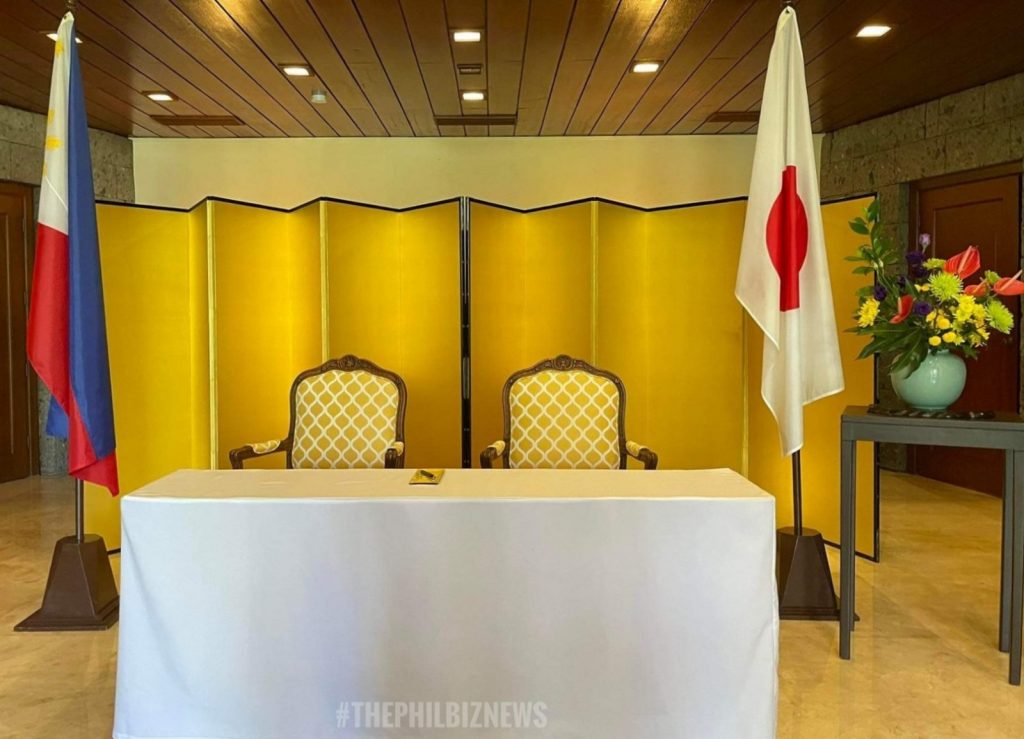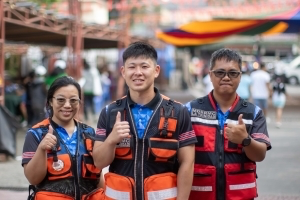Japan Celebrates 60 Years Anniversary of JOCV, lauds Japanese volunteers in PH
Japan and the Philippines mark a milestone in friendship and cooperation as the Japan Overseas Cooperation Volunteers (JOCV) celebrates its 60th anniversary this year.
While Japan remains the Philippines’ largest source of official development assistance—supporting landmark projects like the North-South Commuter Railway, Metro Manila Subway, and Davao City Bypass—its impact goes beyond infrastructure. Through the JOCV program, Japanese volunteers have lived and worked alongside Filipino communities for six decades, bringing skills, compassion, and cultural exchange to the grassroots level.
Since its launch in 1965, over 1,700 JOCVs have served in the Philippines, contributing to agriculture, education, health, social welfare, and disaster risk reduction. Their legacies include aquaculture projects in Ifugao, inclusive education in Iloilo, and the now-iconic La Union Public Botanical Garden.
In 2016, the program’s dedication was recognized with the Ramon Magsaysay Award, the “Nobel Prize of Asia.” Ambassador ENDO Kazuya lauded the volunteers’ work, saying “Here’s to the spirit of volunteerism connecting Japan to the world.”

JOCVs engage more directly as they live with their host communities for two years. This allows them to dive deeper into the local community and eagerly work to improve their well-being.
Through JOCVs, Japan’s diverse human talents are well utilized for a wide range of support including agriculture, education, primary health, and social welfare.
Even with its remarkable growth, the program has still kept to its objectives: making a difference in communities, while promoting mutual understanding and international goodwill.
JOCVs in the Philippines
Over the years, the journeys of JOCVs in the Philippines have provided the richest examples of our cross-cultural exchanges.
To appreciate the depth of these volunteers’ dedication to friendship, we begin with Ms. WATANABE Juri’s story, a volunteer who served in Mayoyao, Ifugao, from 2012 to 2016.
With her rich experience and research in the field, Ms. Watanabe used her passion for aquaculture research to help her community capitalize on their abundance of loach fishes. She aimed to work with locals on a sustainable and accessible method to raise loaches for sustenance.

Difficulties such as securing breeding stock initially led to declining morale among her colleagues. Undeterred, she repurposed a neglected municipal fish farm and steadily worked with her community and the resources available.
Through trust and cooperation, Ms. Watanabe ended her 4-year stay, including an extension, with the locals significantly capable of managing the farm. What started as simple volunteer work transformed into a whole community-driven project.
Meanwhile, Ms. KAMEHAMA Chihiro began her assignment in 2024 at a special need center supporting children with disabilities in Oton, Iloilo. The seasoned teacher in Japan faced some difficulties with a community that mainly communicated in Hiligaynon.
Driven to grow with the community, she studied Hiligaynon and American Sign Language while she worked daily. Through sheer will, she was able to build better relationships with her students and their parents, even realizing opportunities for eventual vocational training to this very day.
Boasting a vast tapestry of stories at present, the long history of JOCVs in the Philippines has also included lasting legacies such as that of Mr. NAKAGAKI Osamu.
In the early days of the JOCV program, in the 1970s, he worked in mango cultivation in San Fernando City, La Union. The mango orchard he established, now known as the La Union Public Botanical Garden, continues to captivate visitors with its lush greenery.
Hearteningly, the JOCVs’ efforts would culminate in a Ramon Magsaysay Award in 2016 for their unwavering devotion. Earning a commendation from one of its pioneering partners, with the “Nobel Prize of Asia” no less, remains an unsurpassable honor.
To date, over 1,700 JOCVs have served the Philippines since its maiden journey. Having met a new group of volunteers in June this year, I can say the legacies of JOCVs are in truly capable hands.
Dedication Through Decades
Backed by a proud history of service, the JOCV program continues strongly to this day, anchoring our people-to-people exchanges on passionate collaboration.
With future deployments focusing on human resource development, industry growth, and disaster risk reduction, we can expect to share more stories and triumphs together.
I salute the JOCVs, here and all over the world, on their special year. Here’s to the spirit of volunteerism connecting Japan to the world.
With future deployments focusing on human resource development, industry growth, and resilience-building, the Japan–Philippines partnership through JOCV continues to thrive—proving that lasting progress begins at the community level.


No comments: